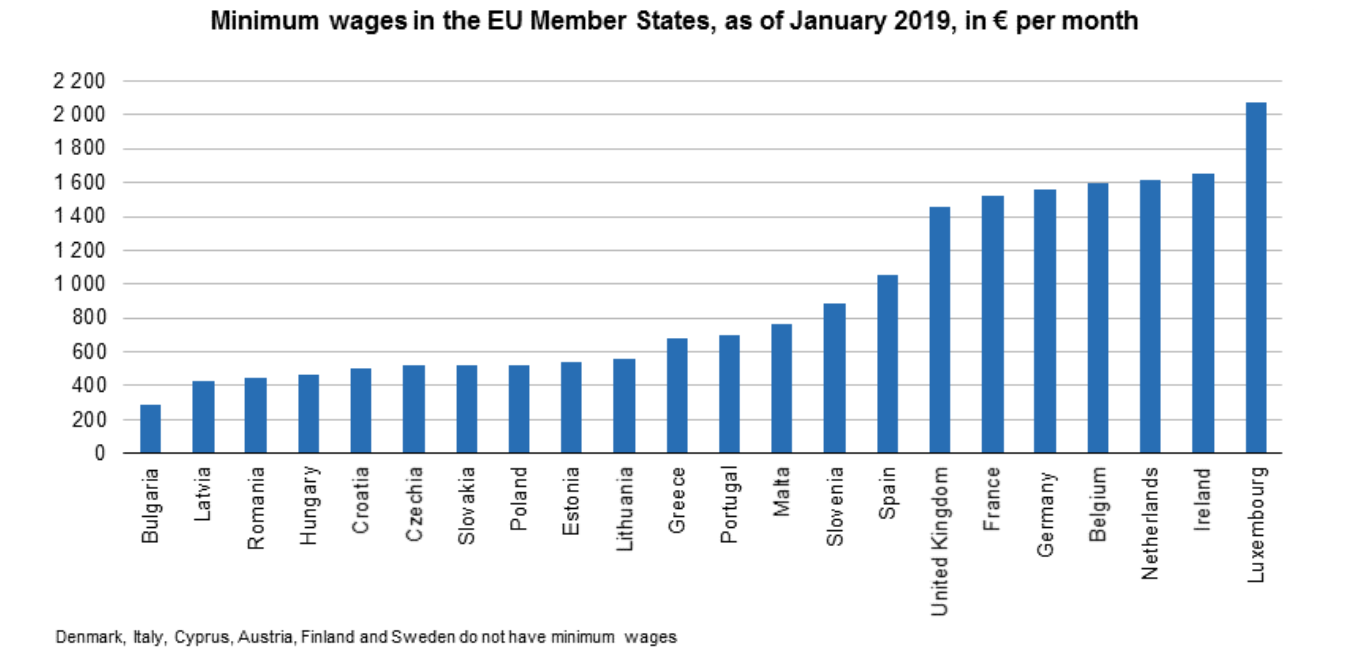22 out of the 28 Member States of the European Union (EU) currently have national minimum wages. The 6 countries in the EU that do not currently have any minimum wage level set are Denmark, Italy, Cyprus, Austria, Finland and Sweden.
Gross minimum wage per month
Bulgaria has the lowest gross minimum wage (€286) across the EU followed by Latvia (€430), Romania (€446), Hungary (€464), Croatia (€506), Czechia (€519), Slovakia (€520), Poland (€523), Estonia (€540) and Lithuania (€555). All these nations are in Eastern Europe.
Nations in Southern Europe are next with Greece (€684), Portugal (€700), Malta (€762), Slovenia (€887) and Spain (€1,050).
The highest minimum wages are in Western and Northern Europe with the United Kingdom (€1,453), France (€1,521), Germany (€1,557), Belgium (€1,594), the Netherlands (€1,616), Ireland (€1,656) and Luxembourg (€2,071).

The highest minimum wage in an EU member state (Luxembourg at €2,071) is more than 7 times higher than the lowest (Bulgaria at €286).
For comparison, the federal minimum wage in the United States is €1,098 per month (based on the $7.25 per hour minimum wage).
Related:
Past, present, future – some demographic and economic statistics for the European Union
Here’s why wages aren’t rising despite record employment and labour shortages
The U.S. total wage bill to corporate profitability ratio throws up several questions
The machines are slowly learning but they can and will be fooled
Nominal wages in the UK grew fastest in a decade but real wages are still lower than a decade ago
The European Union (EU) currently includes Belgium, Bulgaria, Czechia (formerly the Czech Republic), Denmark, Germany, Estonia, Ireland, Greece, Spain, France, Croatia, Italy, Cyprus, Latvia, Lithuania, Luxembourg, Hungary, Malta, the Netherlands, Austria, Poland, Portugal, Romania, Slovenia, Slovakia, Finland, Sweden and the United Kingdom.